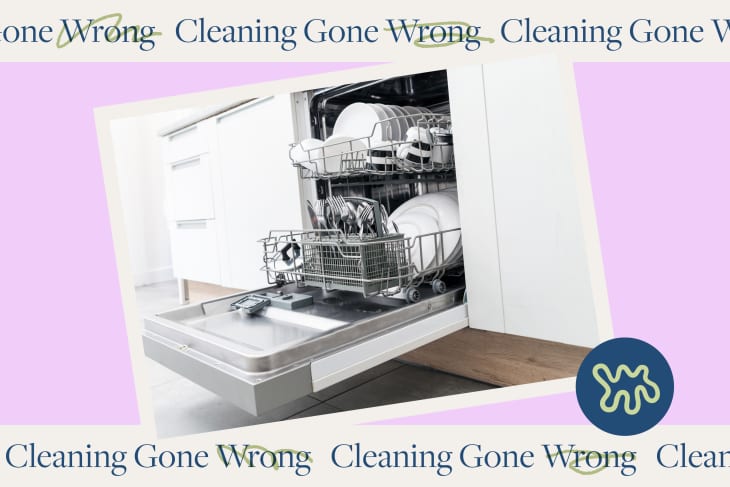Should You Put Dish Soap in the Dishwasher? A Pro Weighs In.

Dishwashers are incredibly convenient and useful — especially after a long day, when the last thing you would want to do is spend time standing over the sink scrubbing dirty dishes. Unlike hand-washing, dishwashers don’t require the same cleaning agent to get this task done efficiently. If you’ve ever attempted running a cycle using dish soap (maybe you ran out of dishwasher detergent) or have ever tried a dish soap DIY to create the equivalent of a dishwasher pod, then you know that this creates a sudsy, foaming mess.
Why Dish Soap Doesn’t Work in a Dishwasher
Dish soap, much like hand soap and bar soap, relies on bubbles and suds to clean, according to Justin Carpenter, cleaning expert and owner of Modern Maids. On the other hand, dishwasher detergents or pods are concentrated formulas that contain specific cleaning agents, chemical compounds, and/or enzymes specifically made for working in a dishwasher. These dissolve with hot water, releasing their formula during the cycle to get your dishes clean from food, hard water, and other stains.
On the contrary, dishwasher pods and detergent should not be used to hand-wash dishes, as they can not only cause skin sensitivities, but the concentrate also may make it more difficult to rinse your dishes (a job water jets in a dishwasher excel at).
In addition to the damage to your appliance, dish soap can create a huge mess in your kitchen, leaving behind a sticky and cloudy residue on your floors, counters, cabinets, or stainless steel exteriors.
“Using dish soap or even too much detergent can be bad for your dishwasher,” says Carpenter. “Excess suds can damage the internal parts of the machine and cause the washer to malfunction, making it less efficient or even completely unusable.”
How to Remedy This Issue
If you did make the mistake of adding dish soap to your dishwasher, Carpenter says there are simple solutions to fixing this problem and getting your dishwasher back to its normal function. First, he recommends wiping the excess from the edges and corners of the dishwasher with a damp cloth and then running an empty cycle (or two) on the hottest cycle to get rid of the suds and any additional soap residue.
“If your dishes still have soap residue after you’ve done this, try using a rinse aid to help reduce the amount of soap residue after each wash cycle,” says Carpenter. “Finally, be sure to check the water hardness in your area and adjust the amount of detergent you use accordingly.”
Alternative Dishwasher Detergents
Whether you want to give a homemade dishwasher detergent a try, or you prefer cleaning products made with natural and non-toxic ingredients, making your own dishwasher detergent is simple and may cost just a fraction of store-bought dishwasher detergent or pods. Carpenter recommends the following ingredients to create your own dishwasher detergent so you never have to reach for your dish soap bottle (accidentally or not) again.
- 1 cup washing soda
- 1 cup borax
- 1/4 cup citric acid
- 1/2 cup coarse salt
- 15-20 drops of your favorite essential oil (optional)
Mix all ingredients into an airtight container, such as a Mason jar, and store in a cool, dry place. Depending on how heavily soiled your dishwasher load is, you can use one to two-and-a-half tablespoons of this mixture in the detergent compartment. Carpenter also recommends adding a small bowl of vinegar to each load to neutralize odors and loosen food particles.